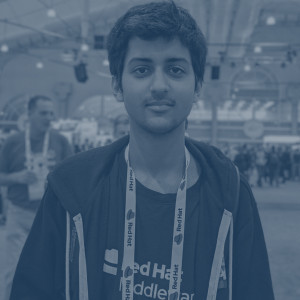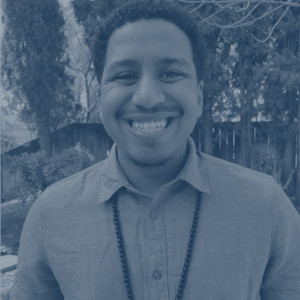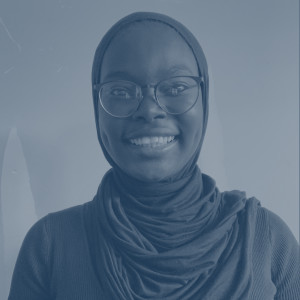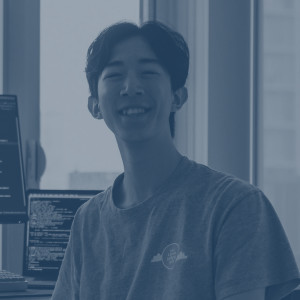Emily Nguyen, 23
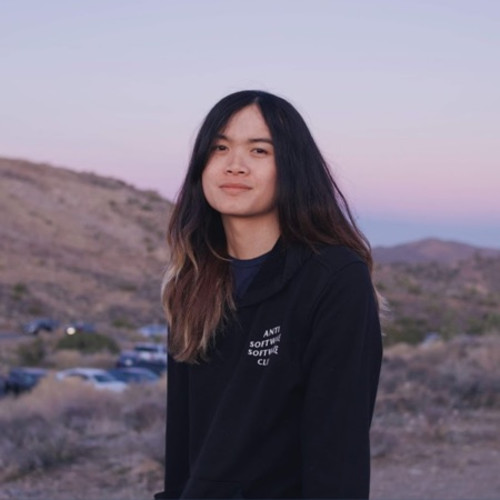
Emily is the founder of San Diego’s largest technology organization - ACM at UC San Diego. What started as a team of six students (all prior hackathon teammates of hers) grew into a huge network with 30 officers, hosting over 130 workshops for more than 5,000 attendees. The organization has over 1,500 members and is now composed of four child organizations that focus on different tech fields: AI, Cybersecurity, Entrepreneurship, and Software Engineering. ACM has promoted its members to attend hackathons, many for their first time, and in one year won enough prizes at hackathons to improve the school’s MLH ranking from position 30 to 15. ACM also helps its members prepare for interviews, and they have found success at companies such as Facebook, Amazon, Tesla, and Microsoft. The massive community that Emily created and helped blossom serves to unite computer science, engineering, design, and business students on her campus, and helps them all find success in the promising future of technology.
Coming out as transgender to her family was a difficult experience for Emily. Her aunt even told her that she would lose all respect in school and never find a job after college. It exacerbated her fears about being an LGBTQIA+ woman in the engineering industry, where the acceptance of such groups is unfortunately still an issue; however, being a member of technology communities actually helped her break out of her shell and encouraged her to be herself. She recalls attending her first woman-centric hackathon, HackXX at UC San Diego in Spring 2018, and being amazed at all the women–both cis and trans–working passionately on projects that promote gender diversity. Later that year she attended IEEE Future Leaders Forum in Texas, and after initially introducing herself with her dead name, organizers helped by giving her a new badge with her true name. She describes all the attendees as supportive, caring, and accepting, and through hackathons, she found a community where she could be totally accepted as herself. Attending many hackathons and conferences has made Emily hopeful that one day technological communities will be able to solve diversity issues and increase diversity in the field. Organizations such as ACM-W and Society of Women Engineers, and hackathons such as AthenaHacks and TechTogether also do amazing work that has changed Emily’s life, and she notes that feeling so welcomed in hacker communities made it much easier for her to accept herself.
Emily first started hacking at SB Hacks in 2018 after learning about hackathons from a club. She signed up expecting to spend the event hacking by herself, but on the shuttle ride to the event, a landslide caused a massive car crash, resulting in an 8-hour detour for her and the other hackers. This experience changed her life, as she found herself bonding with the other attendees and made several strong friendships. Feeling like a part of a community when she had no such expectations got Emily hooked on hackathons, and she has since attended over twenty events, making new friends at every single one.
Emily went into this first hackathon with only HTML and CSS knowledge, and at each event, she focused on learning and honing just one new skill with the help of mentors and teammates. This helped her learn JavaScript, then Node.js, and React over several hackathons. These skills prepared her for internships, the networking at events helped her get interviews, and the hacks she worked on impressed her interviewers. Going to hackathons and becoming a part of the community helped Emily develop all the experience she needed to land two internships at Google, and even a full-time job there as a Software Engineer.
While hackathons in the COVID era may seem like an unknown quantity, Emily had her favorite experience at the fully remote Citrus Hack 2021 hackathon. With a remote team, Emily built Move.it, an AI and math-based web application to help users create their perfect workout. In this project, her team combined React, WebRTC, Tensorflow, Node.js, and many more technologies to create a video call platform that detects, compares, and grades users' exercises. The project won 1st Place Overall at the hackathon.
Quick Facts
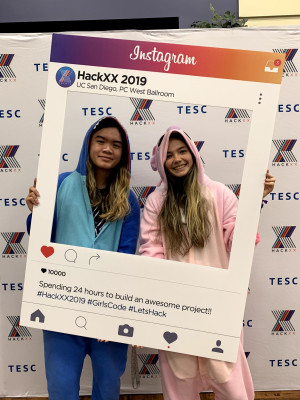
Emily Nguyen, 23

Emily is the founder of San Diego’s largest technology organization - ACM at UC San Diego. What started as a team of six students (all prior hackathon teammates of hers) grew into a huge network with 30 officers, hosting over 130 workshops for more than 5,000 attendees. The organization has over 1,500 members and is now composed of four child organizations that focus on different tech fields: AI, Cybersecurity, Entrepreneurship, and Software Engineering. ACM has promoted its members to attend hackathons, many for their first time, and in one year won enough prizes at hackathons to improve the school’s MLH ranking from position 30 to 15. ACM also helps its members prepare for interviews, and they have found success at companies such as Facebook, Amazon, Tesla, and Microsoft. The massive community that Emily created and helped blossom serves to unite computer science, engineering, design, and business students on her campus, and helps them all find success in the promising future of technology.
Coming out as transgender to her family was a difficult experience for Emily. Her aunt even told her that she would lose all respect in school and never find a job after college. It exacerbated her fears about being an LGBTQIA+ woman in the engineering industry, where the acceptance of such groups is unfortunately still an issue; however, being a member of technology communities actually helped her break out of her shell and encouraged her to be herself. She recalls attending her first woman-centric hackathon, HackXX at UC San Diego in Spring 2018, and being amazed at all the women–both cis and trans–working passionately on projects that promote gender diversity. Later that year she attended IEEE Future Leaders Forum in Texas, and after initially introducing herself with her dead name, organizers helped by giving her a new badge with her true name. She describes all the attendees as supportive, caring, and accepting, and through hackathons, she found a community where she could be totally accepted as herself. Attending many hackathons and conferences has made Emily hopeful that one day technological communities will be able to solve diversity issues and increase diversity in the field. Organizations such as ACM-W and Society of Women Engineers, and hackathons such as AthenaHacks and TechTogether also do amazing work that has changed Emily’s life, and she notes that feeling so welcomed in hacker communities made it much easier for her to accept herself.
Emily first started hacking at SB Hacks in 2018 after learning about hackathons from a club. She signed up expecting to spend the event hacking by herself, but on the shuttle ride to the event, a landslide caused a massive car crash, resulting in an 8-hour detour for her and the other hackers. This experience changed her life, as she found herself bonding with the other attendees and made several strong friendships. Feeling like a part of a community when she had no such expectations got Emily hooked on hackathons, and she has since attended over twenty events, making new friends at every single one.
Emily went into this first hackathon with only HTML and CSS knowledge, and at each event, she focused on learning and honing just one new skill with the help of mentors and teammates. This helped her learn JavaScript, then Node.js, and React over several hackathons. These skills prepared her for internships, the networking at events helped her get interviews, and the hacks she worked on impressed her interviewers. Going to hackathons and becoming a part of the community helped Emily develop all the experience she needed to land two internships at Google, and even a full-time job there as a Software Engineer.
While hackathons in the COVID era may seem like an unknown quantity, Emily had her favorite experience at the fully remote Citrus Hack 2021 hackathon. With a remote team, Emily built Move.it, an AI and math-based web application to help users create their perfect workout. In this project, her team combined React, WebRTC, Tensorflow, Node.js, and many more technologies to create a video call platform that detects, compares, and grades users' exercises. The project won 1st Place Overall at the hackathon.
Quick Facts

